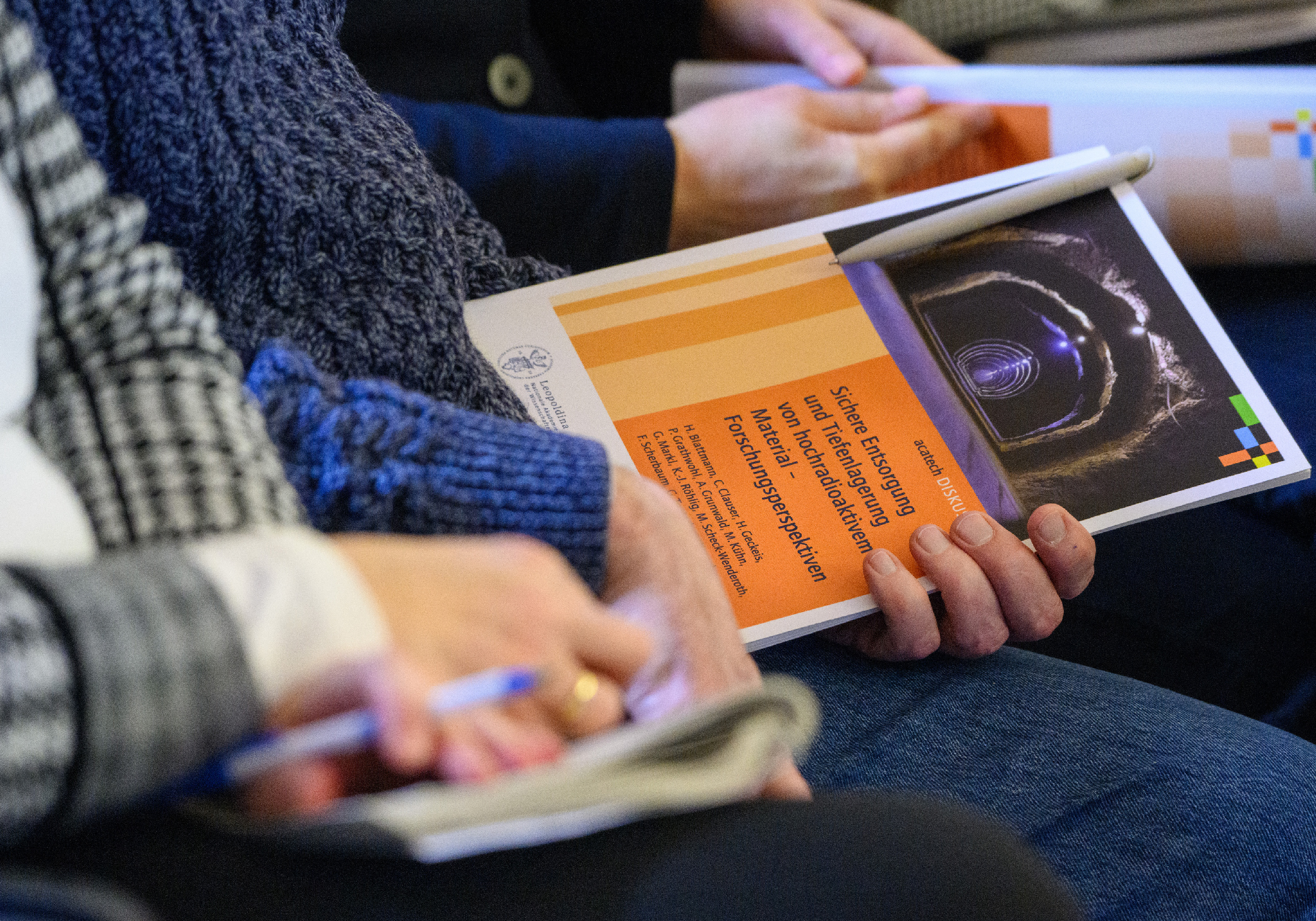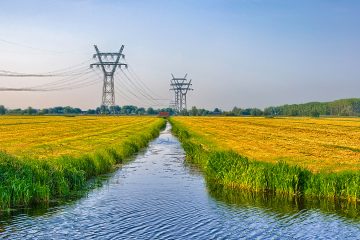Safe disposal of nuclear waste: shaping research for the long-term

Berlin, 31 January 2023
The German site selection procedure for a repository for high-level radioactive waste is only the start of what is a long process: it could take 100 years for a deep geological repository to be filled and sealed. In a paper, experts from the German academies of sciences discuss how to plan the research landscape and the research itself for the long term so as to fulfil this vital role in the repository project. Owing especially to the high-level requirements of the procedure – participatory, science-based, transparent, self-questioning and learning – research into the disposal of nuclear waste and deep geological repositories must, according to the working group, take an interdisciplinary approach and also be reinstated in third-level institutions to a greater extent. Because, for a long time to come, experts who are actively involved in the repository project as well as those who provide independent external scrutiny will be required.
While a phaseout of nuclear power in Germany is scheduled for 2023, the disposal of high-level radioactive material remains a long-term undertaking that will affect this and future generations, and may take until the middle of the 22nd century. acatech President Jan Wörner said, “This is an extremely long time frame in human planning terms. Over the intervening years there will be new scientific findings, new technological developments, changes in society and perhaps also in the political landscape.” But, he went on, all this has to be considered right now. “Of course, nobody can predict the future,” the acatech President continued, “but what we can do is establish a procedure into which new findings can constantly be fed. This learning, participatory procedure is already laid down in the Site Selection Act (Standortauswahlgesetz – StandAG); the aim must now be the successful follow-through.”
More experts are required for independent and critical scrutiny
Horst Geckeis, Karlsruhe Institute of Technology KIT, is the lead on the project on which experts from acatech – National Academy of Science and Engineering (lead-management), Deutsche Akademie der Naturforscher Leopoldina e.V. – German National Academy of Sciences – and the Union of the German Academies of Sciences and Humanities collaborated. He said, “First and foremost, a deep geological repository requires governance and a long-term strategy. This entails the development of a future-oriented research concept and a research landscape that is flexible enough to be able to respond to developments that we cannot foresee at the present point in time.”
The problem he sees here is that nuclear disposal research has undergone considerable decline at third-level institutions in recent decades. Making such research a fixture once again – for one, by putting in place adequate funding for the research – would be crucial to the success of nuclear disposal in Germany. Attractive (course) offerings and employment prospects should be created to bring on the next generation of specialists. Horst Geckeis underlined, “Researchers and experts from various backgrounds and with an understanding of the system will in future not only be required for site selection and for the construction and operation of a deep geological repository, but also for the independent and critical scrutiny of the project as a whole.”
Involving society is also important when it comes to repository research. In the discussion paper, the experts therefore recommend involving laypeople in the research projects from the outset to provide input and pose questions. Ideally, this would bring about collective learning on both sides.
Decision-making with transparency despite uncertainties
The fact that the disposal of nuclear waste will be ongoing for a long time harbours uncertainties. For example, only a short time ago war in Europe was considered unlikely, and yet today there is war in Ukraine. For a deep geological repository to be as resistant as possible to political, economic and social changes, even major changes in the whole of society that could happen in the next few decades have to be taken into account. The social and cultural sciences are called upon to provide perspectives on this and input them into the process.
Safety investigations over a period of one million years give rise to further uncertainties that apply to a deep geological repository, and these must also be considered. One example of this is the continuous change that the deep geological repository system will undergo where researchers have to consider both the interactions among the host rock, filling material, containers and type of waste packaging. Methods are required that allow decisions to be made with transparency despite the uncertainties, and that can be communicated to laypeople on equal footing and in a comprehensible way.
Looking at other countries and establishing quality controls for research
Long-term and broad-based interdisciplinary research into the safe disposal of nuclear waste such as the team of experts proposes requires processes for independently evaluating the status of research. This may take the form of reviews by experts by means of the regular quality control and quality assurance of research programmes and results, the aim being to continuously improve them.
Looking beyond Germany’s borders, the situation regarding disposal projects is mixed. In some cases, projects are at a very advanced stage and deep geological repositories for high-level waste are about to be commissioned. The international networking of research projects that is already under way in some quarters allows for continual comparison with the findings made and experience gained abroad. In the opinion of the team of experts, this will be essential to further developing the German disposal project to make it a successful and satisfactory endeavour.


